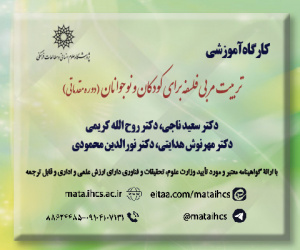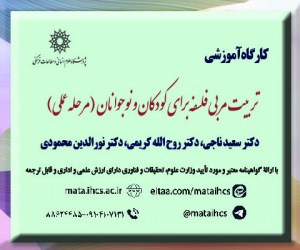طراحی الگوی آموزش و توسعه سرمایه اجتماعی دانش آموزان دوره متوسطه (مقاله علمی وزارت علوم)
درجه علمی: نشریه علمی (وزارت علوم)
آرشیو
چکیده
پژوهش حاضر با هدف طراحی الگوی آموزش و توسعه سرمایه اجتماعی دانش آموزان دوره متوسطه انجام شد. رویکرد حاکم بر پژوهش، کیفی و مبتنی بر نظریه داده بنیاد است. جامعه اطلاعاتی پژوهش شامل، متخصصان حوزه جامعه شناسی، برنامه ریزی آموزشی و همچنین صاحب نظران حوزه برنامه ریزی درسی بودند. بیست و یک نفر نمونه به شیوه هدفمند انتخاب و با انان مصاحبه درحد اشباع انجام شد. ابزار گردآوری داده، فرم مصاحبه نیمه ساختاریافته بود. داده های حاصل از مصاحبه به منظور دریافت معانی نهفته بر حسب رهیافت گلیزری کد گذاری باز، محوری و انتخابی تجزیه و تحلیل شد. جهت تامین اعتبار یافته ها از روش بازبینی اعضا و برای افزایش پایایی از روش های؛ اجرای فرایند نظام مند ثبت، ضبط و نوشتن داده ها، استفاده شد. نتایج پژوهش نشان داد الگوی آموزش و توسعه سواد احتماعی دانش آموزان دوره متوسطه از یازده مولفه؛ اعتماد اجتماعی، پاسخگویی اجتماعی، سلامت اجتماعی، تعاملات اجتماعی، هویت اجتماعی، دانش اجتماعی، ارزش محوری اجتماعی، قانون مندی اجتماعی، وحدت اجتماعی، سرمایه عاطفی و تعهد اجتماعی تشکیل شده است.Designing a model for education and development of social capital of high school students
Objective: The aim of this study was to design a model of education and social capital development for high school students.Methods: The research method is qualitative and based on the Grounded theory. The research information population included specialists in the field of sociology, educational planning, as well as experts in the field of curriculum planning. Twenty-one samples were purposefully selected and interviewed in a saturated manner. The data collection tool was a semi-structured interview form. The data obtained from the interview were analyzed in order to obtain the hidden meanings according to Glaser approach of open, axial and selective coding. To validate the findings of the member review method and to increase the reliability of the method; A systematic process of recording, recording and writing data was used.Results: The results showed that the model of education and development of social literacy of high school students from eleven components; Social trust, social accountability, social health, social interaction, social identity, social knowledge, social core value, social legitimacy, social unity, emotional capital, and social commitment are formed.



